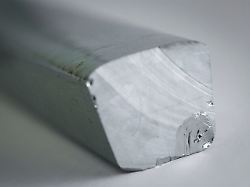Critical resource
China is making germanium a weapon in the trade war
By Max Borowski
7/4/2023 3:09 p.m
The elements germanium and gallium were once discovered in Germany and France. But the Europeans, like the rest of the world, have long been dependent on China for supplies of the two important metals. Beijing is now playing out this power.
It was a German and a Frenchman who discovered the metals germanium and gallium in their respective home countries in the 19th century and gave the new chemical elements the names under which they are still traded worldwide today. In the 21st century, they were niche products in the global commodity market, each of which is only produced a few hundred tons per year, but they are part of modern high-tech products – from semiconductors to communications technology to night vision devices. They are also indispensable for the sectors that are currently at the center of global competition and whose promotion has top priority in Germany: renewable energies and microchips.
The EU has gallium and germanium on the list of “critical raw materials” that are “crucial for Europe’s economy”. But the eponymous countries Germany and France are, like most economies, almost completely dependent on the leading germanium and gallium producer: China. According to EU estimates, the People’s Republic dominates the world market for gallium with 94 percent and for germanium with 83 percent.
Beijing is now fully exploiting this market power in the trade dispute with the USA and Europe: the Chinese government announced that new export regulations will apply to gallium and germanium from August 1st. “In order to protect national security and interests,” the export of the metals would have to be applied for in future “special state approval,” the Department of Commerce said.
With the announcement, Beijing is obviously reacting to the latest steps taken by the United States and its allies. A few days ago, the Dutch government issued new restrictions on the export of chip production technology from the Dutch company ASML to China. ASML has a near-monopoly on certain technologies necessary for next-generation chip fabs. Since last year, the USA, Japan and other countries have imposed sanctions, some of which are drastic, intended to restrict China’s production of modern chips and the development of other technologies such as artificial intelligence.
Amid rising tensions and concerns over a possible Chinese attack on Taiwan, both the US and the EU are debating steps to reduce their reliance on the Chinese economy for raw materials and other inputs. Beijing’s new export rules for gallium and germanium are likely to further fuel this debate.
